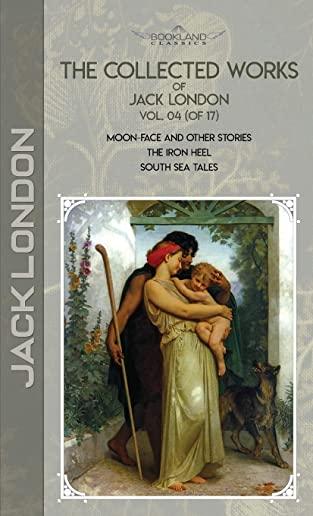
London, Jack
The story follows the unnamed protagonist and his irrational hatred of John Claverhouse, a man with a "moon-face". The protagonist clearly states that his hatred of him is irrational, saying: "Why do we not like him? Ah, we do not know why; we know only that we do not. We have taken a dislike, that is all. And so I with John Claverhouse." The protagonist becomes obsessed with Claverhouse, hating his face, his laugh, his entire life. The protagonist observes that Claverhouse engages in illegal fishing with dynamite and hatches a scheme to kill Claverhouse.
The protagonist teaches a dog, Bellona, to do one thing and one thing only, retrieval, with emphasis on water retrieving and taking the stick back to the thrower no matter where they were. Claverhouse is presented with Bellona before his upcoming trout fishing trip. The protagonist observes from a distance with glee as Claverhouse lights a stick of dynamite and throws it into the water. Bellona, trained to retrieve, fetches the explosive. Claverhouse runs from the dog in futility until "just as she caught up, he in full stride, and she leaping with nose at his knee, there was a sudden flash, a burst of smoke, a terrific detonation, and where man and dog had been the instant before there was naught to be seen but a big hole in the ground."
The death is ruled an accident while engaged in illegal fishing. The protagonist takes pride in killing Claverhouse with no mess or brutality and lives in peace.
The novel is based on the fictional "Everhard Manuscript" written by Avis Everhard, which she hid and which was subsequently found centuries later. In addition, this novel has an introduction and series of (often lengthy) footnotes written from the perspective of scholar Anthony Meredith. Meredith writes from around 2600 AD or 419 B.O.M. (the Brotherhood of Man). Jack London writes at two levels, often having Meredith condescendingly correcting the errors of Everhard yet, at the same time, exposing the often incomplete understanding of this distant future perspective.
Meredith's introduction also acts as a deliberate "spoiler" (the term did not yet exist at the time of writing). Before ever getting a chance to get to know Avis and Ernest, how they fell in love or how Avis became politically involved, the reader is already told that all their struggles and hopes would end in total failure and repression, and that both of them would be summarily executed. This gives all that follows the air of a foreordained tragedy. There is still left the consolation that a happy end would come for humanity as a whole - though hundreds of years too late for Avis and Ernest as individuals; the cruel oligarchy would fall, and the two will be vindicated and respected by posterity as pioneers and martyrs. The book begins with the acquaintance of Avis Cunningham, a daughter of a renowned physicist with the socialist Ernest Everhard. At first, Avis does not agree with Ernest in that the whole contemporary social system is based on exploitation of labour. However, she proceeds to investigate the conditions the workers live in and those terrible conditions make her change her mind and accept Ernest's worldview. Similarly, Bishop Morehouse does not initially believe in the horrors described by Ernest but then becomes convinced in their truth and is confined to a madhouse because of his new views.
South Sea Tales (1911) is a collection of short stories written by Jack London. Most stories are set in island communities, like those of Hawaii, or are set aboard a ship.
List of Stories:
The House of Mapuhi
The Whale Tooth
Mauki
"Yah Yah Yah "
The Heathen
The Terrible Solomons
The Inevitable White Man
The Seed of McCoy







